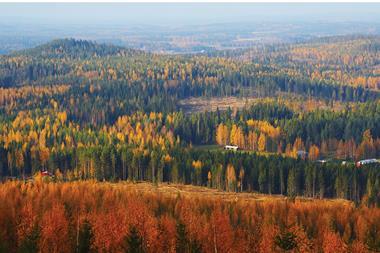A UK NGO has called on institutional investors including Aviva Investors, Standard Life Investments and the Church of England to demand that oil company Soco International abandon a project underway at a UNESCO World Heritage site.
Anti-corruption activist Global Witness also asked investors to commission an independent inquiry into London-listed Soco’s activities in the Democratic Republic of the Congo (DRC), after releasing a report presenting evidence that the FTSE 250 company had engaged in illegal activities as part of its oil exploration project in Virunga National Park.
The report by Global Witness alleged that the company had made “illicit payments” and appeared to have “paid off” rebel forces while benefitting from the “fear and violence fostered by government security forces in eastern Congo”.
Nat Dyer of Global Witness said in a statement: “Soco is threatening Africa’s oldest national park through an oil project marred by bribery, intimidation and violence.
“Pension funds and other investors must demand that Soco quits Virunga for good and that it accounts for its actions,” he added.
The NGO said its findings were based on “undercover recordings” gathered in the DRC “as part of an investigation by UK filmmakers, which have been reviewed by Global Witness.”
Large institutional investors in Soco include Aviva Investors, Standard Life Investments and the Church of England Pension Board, who all told IPE they had been engaging with the firm.
The British Airways pension schemes and several UK local authority funds – including those for the London borough of Islington, councils in Lincolnshire and Nottinghamshire and the West Midlands, West Yorkshire and South Yorkshire funds – also hold stakes.
European investors include PDN, the Dutch pension fund for employees of life sciences firm DSM, and previously the Norwegian Government Pension Fund Global.
However, Global Witness reported that Norges Bank Investment Management (NBIM) sold its stake in Soco in 2013, “partly because of concerns about the company’s operations in Virunga”.
At the end of 2012, NBIM disclosed holdings in Soco worth NOK119m (€16.1m). The company was no longer listed in its 2013 year-end portfolio breakdown.
Stephanie Maier, head of responsible investment strategy & research at Aviva Investors said that her firm had been engaging with Soco over its activities in the World Heritage site and said the activities were placing it at “serious risk” of failing Soco’s stated aim of a “responsible approach to oil and gas exploration and production”.
Maier added that these concerns led to Aviva Investors commissioning an independent report into the firm’s activities in DRC, which set out a number of proposals in regard to board structure, remuneration and other environmental, social and governance (ESG) changes.
She highlighted the firm’s public commitment to no longer “undertake or commission” any further exploratory drilling in Virunga, or any other World Heritage-listed site.
“We consider both the spirit and the letter of the commitment to be a very positive step forward,” Maier said.
“However, continue to engage with Soco regarding respect for the integrity of the World Heritage site boundaries and the full set of recommendations we outlined.”
Soco released the announcement that it would stop drilling in Virunga jointly with the World Wildlife Fund (WWF) earlier this year. The park is is home to a quarter of the world’s 880 remaining mountain gorillas.
The announcement followed a WWF complaint with the OECD about Soco’s Virunga project.
A spokesperson for Standard Life Investments said that it had ongoing engagements with Soco on a number of issues, inlcuidng its activities in Virunga. “We continue to engage with the company and encourage best environmental, social and governance practices.”
A spokesman for the Church of England Pensions Board meanwhile thanked Global Witness for publicising Soco’s acitivies.
“Following the WWF’s complaint to the UK National Contact Point in 2013, we commenced a process of engagement with Soco about the environmental and social issues associated with their operations in the DRC,” he added.
“Despite this complaint now having been abandoned, and Soco having clarified its position, we continue to engage.”
However, according to Global Witness, the company’s behaviour following the announcement suggested that it remained committed to the exploration project.
“Soco has also been at pains to tell investors and the Congolese authorities that its agreement with WWF did not signal the company was withdrawing from Virunga,” the NGO said.
Addressing the claims contained within the NGO’s report, Maier said: “We have read with interest the Global Witness report and have raised with Soco the allegations within the report as part of our ongoing engagement.”
She said that Aviva Investors was engaging over human rights and corruption risk and was anticipating a “positive response”, which it would then review.
Soco maintained that Global Witness had not allowed it prior sight of the report, although the document cited exchanges between Soco and the NGO.
A spokesperson for Soco told IPE: “Soco did send a letter to Global Witness on 4 June in response to allegations put to them, but [the company] was not provided a copy of the report itself until it was made publicly available.”
The company had previously released a statement saying it was “aware” of the report.
“As stated in our comprehensive letter to Global Witness of 4 June, we requested that Global Witness provide Soco with any evidence they had to support their allegations, since any breach of our code of business conduct and ethics would lead to immediate action by Soco,” it said at the time.
“However, despite Global Witness calling on Soco to investigate these allegations, Global Witness itself has refused and continues to refuse to provide any evidence to the company to support their allegations.”










